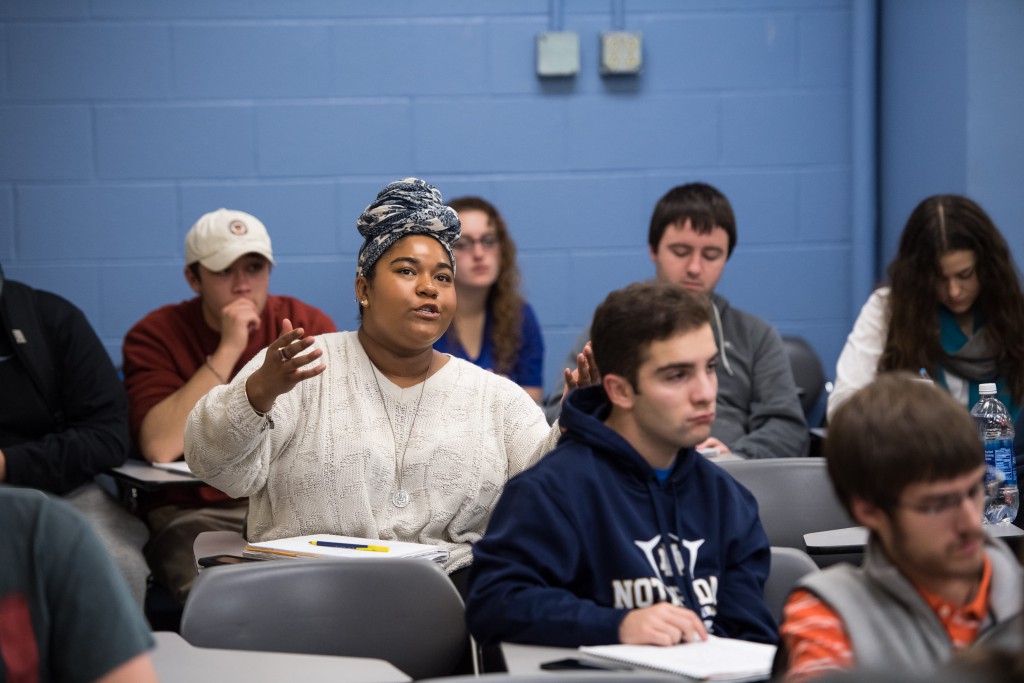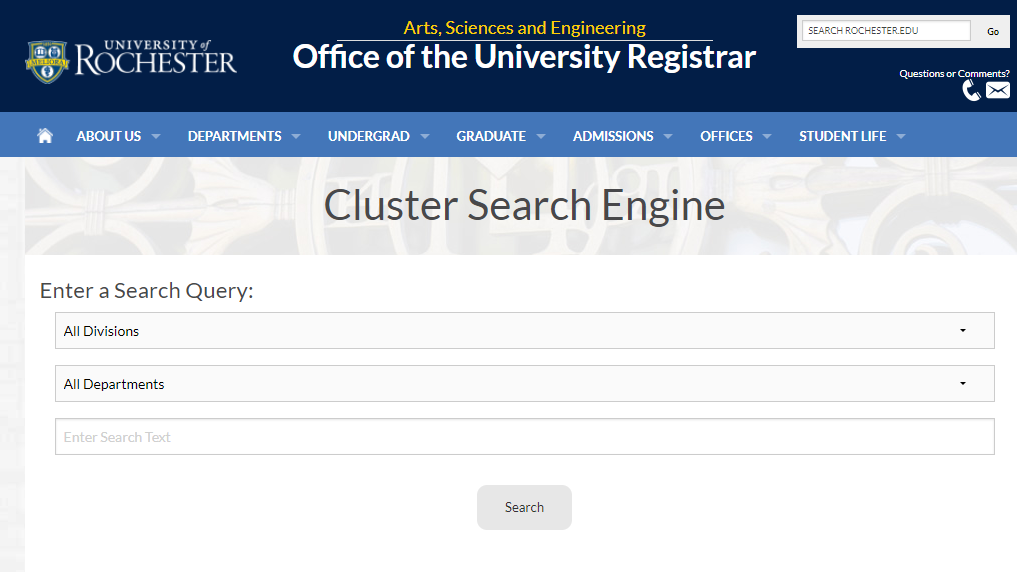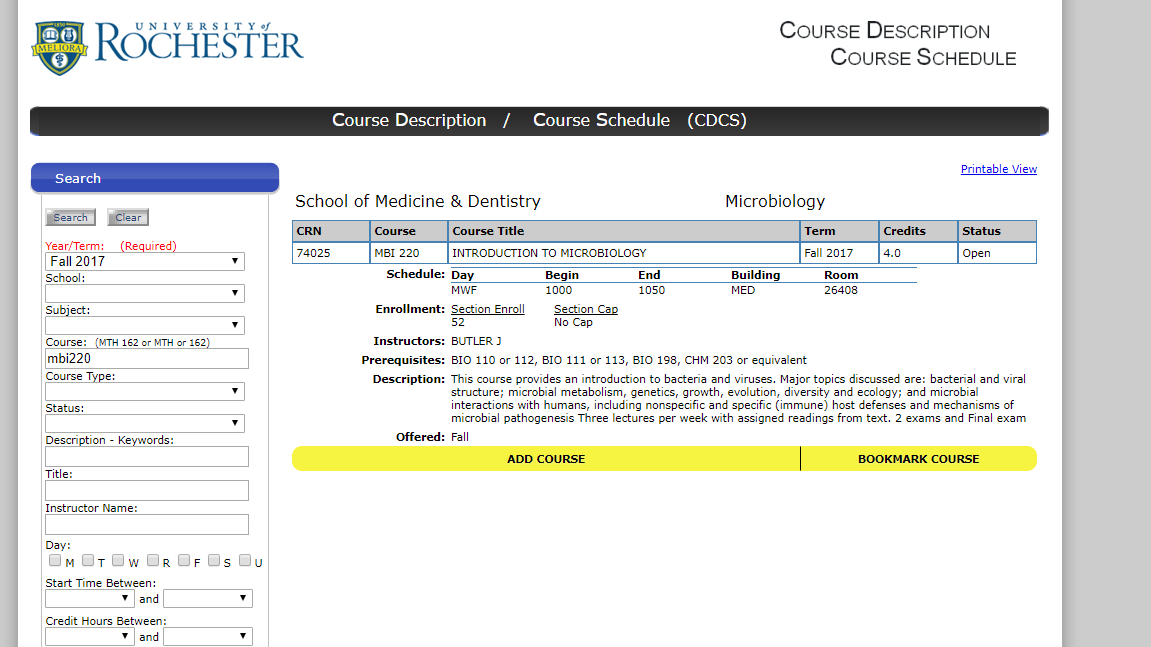Have you ever walked into a classroom and wondered, “When will I ever need to know this?” The notion in high school is that this will make you a more rounded student with critical thinking skills, community awareness, problem-solving, etc.

But let’s be honest—do I really need to know that yellow symbolizes greed and luxury in The Great Gatsby? Or do I really need to know the specific details of the rise and fall of the Aztec Empire? Why did I ever have to provide so many geometric proofs? (If you are interested in these things, props to you. Please study these topics. I am not actually trying to discourage anyone. I am just getting a point across.)
Unless I was going into a field that required such knowledge, like English, history, or math, I would probably never need that information. If you ever feel like you are just wasting your time learning things that are not relevant to you, then Rochester’s flexible curriculum would be perfect for you. It’s designed to allow you to learn what you want and/or need for your interests and future career.
What does a flexible curriculum really mean?
A flexible curriculum means you have no required subjects. That does not mean you have no required courses. Instead, the courses that are required are for your major, minor, or cluster, with the exception of Writing 105 (everyone must take this course).
Your major, depending on what it is, could require you to take a math or English course even if you don’t want to. However, the requirements for the major are geared toward giving you the skills necessary for any possible job that is specific to your major. Take microbiology (my major) for example. The main parts of a microbiology major are the biology and chemistry courses. But Calculus I and 2, physics, and an auxiliary math or computer science credit is required.
Why do I need calculus? I asked myself this, and I found out that a lot of chemistry utilizes calculus, so having this type of background would be crucial for fundamentals in chemistry. There are definitely parts of calculus that may not be as relevant for me. But a good example of a useful mechanism that can be applied in research or labs for microbiology-related fields is rate change, which I learn in calculus. Overall, the courses in a major are designed to give you relevant skills, and if you find yourself not interested in a lot of the skills and applications of the courses, then you could consider switching to another major.
Aren’t clusters just classes that are not relevant?
Clusters are actually a super interesting concept. Every student is tasked with learning something in each of the three divisions of learning (social sciences, natural sciences, and humanities). You must take a cluster of three related courses of your choice in each division that is not already covered by your major(s) and/or minor(s). For example: I’m a microbiology major, which falls under the natural sciences. So I have to take clusters in the social sciences and humanities before I graduate.
At first, it can definitely seem like a drag to take additional courses. The generic answer would be to say it will broaden your scope and make you a more well-rounded student. But let’s be honest, that is not as meaningful of an answer. My interpretation is not quite generic. In a lot of ways, clusters force you to go out of your comfort zone and take a class you are interested in that may not be directly helpful for your career. Use the cluster to study a passion, such as music or dance (Biomechanics of Human Movement sounds super interesting).
But clusters can also be used to supplement your major. For example, as a microbiology major, I plan on using a clinical psychology (social sciences) cluster as a way to supplement a possible career as a physician, or bioethics (humanities) as a way to prevent unethical treatments in research. There are many opportunities to use clusters as a way to enhance your major.
How does the flexible curriculum affect undecided majors?
It could definitely seem like being undecided would not be a good idea at Rochester compared to a more liberal arts education. But that is not the case. A flexible curriculum allows students to explore their classes more freely without being restricted to taking certain requirements. Since students are not required to make a decision about their major until the end of their sophomore year, there is a lot of time for exploration. Some of my closest friends are finishing their first semester of biology and chemistry and are realizing that they would rather study something else. Even though they are switching, the classes can still be used as a natural science cluster, and they still have plenty of time to find their main interest.
Final remarks
Although a flexible curriculum seem extremely daunting as there is a lot of free will in your course selection, there is also a team of people guiding you along. Pre-major advisors, First-Year Fellows, and counseling services are all actively ready to help students figure their academic plan. In a lot of ways, it is like a puzzle. It is extremely fun to plan your courses using the cluster search engines, CDCS page, and visiting academic department websites about majors or minors offered.


Also, I recommend installing the Google CDCS plugin that is powered by the University of Rochester. That way, it is easier to plan a dream schedule on the CDCS page. It may be too early to be looking at your classes if you are a prospective student, but I recommend trying the CDCS out after picking a possible cluster.
If you ever have any additional questions, feel free to leave a comment! I would be more than happy to reply!

